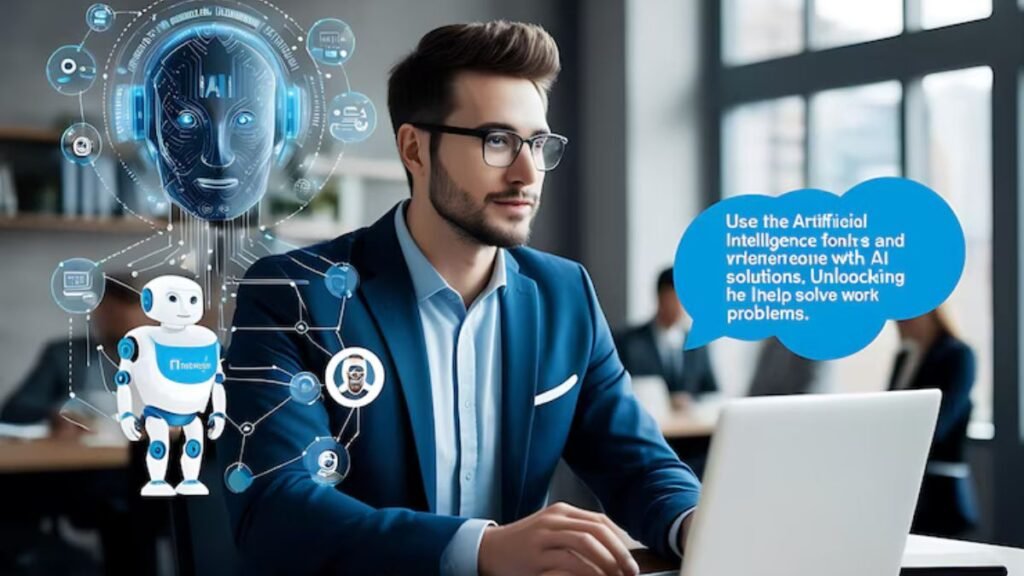The development of artificial intelligence (AI) has prompted discussions about how it can change different sectors of the economy, but one topic is still at the top of many people’s minds in the computer industry: Openai Replace Programmers? Developers and IT professionals are both excited and nervous about how AI will affect software development in the future as tools like ChatGPT and others continue to advance. Specifically, the increasing contribution of OpenAI to the development of advanced AI models has increased the likelihood of automation replacing some coding duties.
This blog examines how programming may be affected by AI, what OpenAI may provide developers, and why human knowledge will always be valuable even as AI advances.
Can OpenAI Replace Programmers? Exploring AI’s Role in the Future of Coding
The main topic of discussion when it comes to Openai Replace Programmers to automate certain steps in the code. App developers and coders frequently use tools like ChatGPT, which can already produce lines of code, debug issues, and provide optimizations based on prompts.
Openai Replace Programmers Although this is amazing it’s crucial to realize that AI lacks the critical and creative thinking abilities that are essential for software development. While AI as it exists now can help with repetitive and rule-based activities, it cannot completely replace a developer’s creativity, intuition, and problem-solving skills.
Instead of posing an existential threat to coding jobs, AI’s capabilities should be seen as complementary. OpenAI for developers presents a variety of powerful tools that can improve efficiency by automating mundane tasks like code refactoring, debugging, or even documentation. These tasks are time-consuming but require relatively less intellectual engagement. By offloading these tasks to AI, programmers can free up more time to focus on higher-level logic, architectural design, and innovative problem-solving.
How OpenAI is Reshaping the Future of Software Development
The question isn’t if AI will replace programmers but how it will change their workflows. The tech landscape is constantly evolving, and just as past advancements have rendered some manual tasks obsolete, the same is happening with coding through automation.
For example, tools like Codex (a model created by OpenAI) can convert natural language prompts into code. This feature allows developers to generate code snippets simply by describing what they need. In practice, this can significantly speed up the initial stages of coding, reduce syntax errors, and streamline some parts of app development.
Openai Replace Programmers impact is also seen in code review and bug detection. AI can efficiently spot errors or vulnerabilities in code, giving developers more time to focus on optimizing the user experience or building new features. AI-powered suggestions can be invaluable, especially for junior developers who are still building their expertise.
OpenAI for developers is not just limited to automating code. It provides a suite of APIs that assist in everything from natural language processing to reinforcement learning. These tools enable developers to integrate sophisticated AI capabilities into their applications, which would have been incredibly difficult and time-consuming to code manually.
In this context, AI is more of a collaborator than a competitor to human programmers. It takes care of the groundwork, leaving developers to tackle more complex and creative tasks that demand human ingenuity.
Will OpenAI Replace Programmers? Understanding AI’s Limitations
While AI has a lot of potential, it must be understood to have its limitations. Though highly capable in understanding and creating language that resembles that of a human, OpenAI’s models, like ChatGPT, are not flawless. Despite having been taught on huge datasets, these AI systems are not as adept at understanding code as a human programmer is. Instead of addressing the problem as a developer would, they anticipate the most likely result based on patterns they found by analyzing enormous volumes of data.
AI, for example, can assist you in writing code, but it may not always be the best or most optimized approach. AI-generated code still needs to be watched and reviewed by developers to make sure it complies with best practices, security guidelines, and performance requirements. Comprehensive knowledge of the architecture is necessary for complex software systems. and the broader ecosystem in which they operate—something that AI is far from mastering.
Additionally, programmers often need to adapt code based on evolving business needs, customer feedback, and long-term scalability. AI lacks the nuanced understanding of context and human behavior that is often critical in making these adjustments.

OpenAI Replace Programmers: Navigating the Future of Coding and AI Collaboration
The future of coding lies not in AI replacing programmers but in creating an AI-augmented workflow. OpenAI’s tools will undoubtedly play a significant role in helping developers work more efficiently. ChatGPT app developers, for example, can leverage AI’s language generation capabilities to create chatbots or automate conversational aspects of an app with ease.
As AI continues to evolve, we may see a shift where the role of a programmer is less about writing code line-by-line and more about designing systems, managing AI models, and making higher-level decisions about how to best solve problems.
Developers who embrace AI will be better positioned for the future. They can collaborate with AI to handle repetitive tasks, reduce human error, and work more productively. The key to navigating this future is understanding that while AI, such as Openai Replace Programmers, can be a powerful assistant, it cannot replace the unique human traits that make software development a dynamic and innovative field.
For any Digital Marketing services in India click here
Conclusion: Will OpenAI Replace Programmers?
The short answer is no. Openai Replace Programmers, but it will redefine how they work. By taking over tedious tasks and assisting in code generation, AI will help developers focus on more complex and creative challenges. For programmers who learn to integrate AI tools into their workflow, the future of coding is bright. They’ll be able to build faster, smarter, and more efficient applications with AI as a trusted partner.
